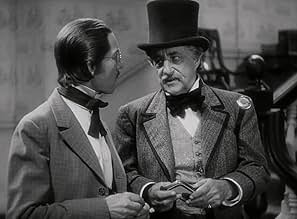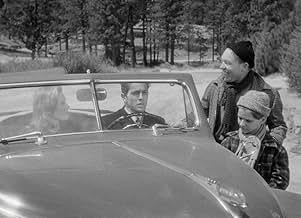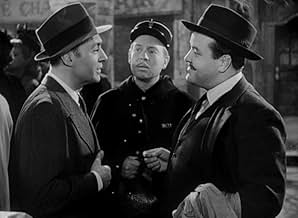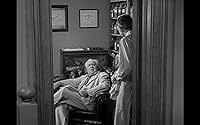Byron Foulger(1899-1970)
- Actor
One of those wonderfully busy character actors whose face is familiar
if not his name, mild-mannered actor Byron Foulger began performing
with community theater, and stock and repertory companies after
graduating from the University of Utah. He met his future wife,
character actress Dorothy Adams,
in one of these companies. The marriage lasted nearly five decades and
ended only with his death.
Making his Broadway debut in a 1920 production of "Medea" that featured Moroni Olsen as Jason (of the Argonauts), and went on to appear in several other Olsen Broadway productions and in close succession (including "The Trial of Joan of Arc," "Mr. Faust" and "Candida"). While touring the country with Olsen's stock company, he ended up at the Pasadena Playhouse where he both acted and directed. Thereafter he and wife Dorothy decided to settle in Los Angeles.
Together the acting couple tried to stake a claim for themselves in 30s and 40s Hollywood films. Both succeeded, appearing in hundreds of film parts, both together and apart, albeit in small and often unbilled bits. A man of meek, nervous countenance, Foulger's short stature and squinty stare could be used for playing both humble and shady fellows. In the 1940s, the actor became a part of Preston Sturges' company of players, appearing in five of his classic films -- The Great McGinty (1940), Sullivan's Travels (1941), The Palm Beach Story (1942), The Miracle of Morgan's Creek (1943) and The Great Moment (1944).
Although predominantly employed as an owlish storekeeper, mortician, professor, or bank teller, his better parts had darker intentions. He was exceptional as weaselly, mealy-mouthed, whining henchmen who inevitably showed their yellow streak by the film's end.
The character actor eased into TV roles in the 1950s and '60s, displaying a comedy side in many folksy, rural sitcoms. His final regular TV role was as train conductor Wendell Gibbs in the final years of the Petticoat Junction (1963) series. The father of actress Rachel Ames, Foulger died of a heart ailment on April 4, 1970, coincidentally the same day the final new episode of Petticoat Junction (1963) was broadcast. .
Making his Broadway debut in a 1920 production of "Medea" that featured Moroni Olsen as Jason (of the Argonauts), and went on to appear in several other Olsen Broadway productions and in close succession (including "The Trial of Joan of Arc," "Mr. Faust" and "Candida"). While touring the country with Olsen's stock company, he ended up at the Pasadena Playhouse where he both acted and directed. Thereafter he and wife Dorothy decided to settle in Los Angeles.
Together the acting couple tried to stake a claim for themselves in 30s and 40s Hollywood films. Both succeeded, appearing in hundreds of film parts, both together and apart, albeit in small and often unbilled bits. A man of meek, nervous countenance, Foulger's short stature and squinty stare could be used for playing both humble and shady fellows. In the 1940s, the actor became a part of Preston Sturges' company of players, appearing in five of his classic films -- The Great McGinty (1940), Sullivan's Travels (1941), The Palm Beach Story (1942), The Miracle of Morgan's Creek (1943) and The Great Moment (1944).
Although predominantly employed as an owlish storekeeper, mortician, professor, or bank teller, his better parts had darker intentions. He was exceptional as weaselly, mealy-mouthed, whining henchmen who inevitably showed their yellow streak by the film's end.
The character actor eased into TV roles in the 1950s and '60s, displaying a comedy side in many folksy, rural sitcoms. His final regular TV role was as train conductor Wendell Gibbs in the final years of the Petticoat Junction (1963) series. The father of actress Rachel Ames, Foulger died of a heart ailment on April 4, 1970, coincidentally the same day the final new episode of Petticoat Junction (1963) was broadcast. .


























